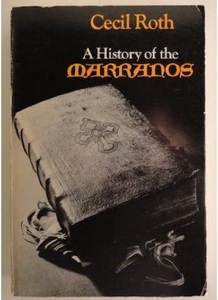NAMES ANALYSIS REPORT
You searched for:"Teixeira",
Here's what we found
There are many indicators that the name Teixeira may be of Jewish origin, emanating from the Jewish communities of Spain and Portugal.
When the Romans conquered the Jewish nation in 70 CE, much of the Jewish population was sent into exile throughout the Roman Empire. Many were sent to the Iberian Peninsula. The approximately 750,000 Jews living in Spain in the year 1492 were banished from the country by royal decree of Ferdinand and Isabella. The Jews of Portugal, were banished several years later. Reprieve from the banishment decrees was promised to those Jews who converted to Catholicism. Though some converted by choice, most of these New-Christian converts were called CONVERSOS or MARRANOS (a derogatory term for converts meaning pigs in Spanish), ANUSIM (meaning "coerced ones" in Hebrew) and CRYPTO-JEWS, as they secretly continued to practice the tenets of the Jewish faith.
Our research has found that the family name Teixeira is cited with respect to Jews & Crypto-Jews in at least 12 bibliographical, documentary, or electronic references:
From the civil records of Amsterdam, The Netherlands
The Amsterdam Municipal Archives possess a complete set of registers of intended marriages from 1578 to 1811, the year when the present Civil Registry was started. Between 1598 and 1811, 15238 Jewish couples were entered in these books. Both the number of records and the volume of data that may be extracted from them are unprecedented.
Finding Our Fathers: A Guidebook to Jewish Genealogy, by Dan Rottenberg
In this work Dan Rottenberg shows how to do a successful search for probing the memories of living relatives, by examining marriage licenses, gravestones, ship passenger lists, naturalization records, birth and death certificates, and other public documents, and by looking for clues in family traditions and customs. Supplementing the "how to" instructions is a guide to some 8,000 Jewish family names, giving the origins of the names, sources of information about each family, and the names of related families whose histories have been recorded. Other features included a country-by-country guide to tracing Jewish ancestors abroad, a list of Jewish family history books, and a guide to researching genealogy.
Jews in Colonial Brazil, by Arnold Wiznitzer
Professor Wiznitzer gathered detailed information about individual Jewish settlers in colonial Brazil and about cases where they were brought before the Inquisition at Lisbon, and his study throws new light on some phases of Brazilian colonial history. Many Jews fled to Brazil and others were deported to the colony as convicted heretics after the King of Portugal attemtped to compel all of his Jewish subjects to accept Christianity in 1497.They were active in the establishment of the sugar industry and in trade, and they maintained close relations with another large group of exiles who had taken refuge in Amsterdam.Most of the "new Christians" continued to practice the old religion secretly.
The Sephardim of England, by Albert M. Hyamson
A history of the Spanish & Portugese Jewish Community, 1492-1951.
Secrecy and Deceit: The Religion of the Crypto-Jews, by David Gitlitz
Despite the increased attention given to Hispano-Jewish topics, and the "conversos" or Crypto-Jews in particular, this is the first thorough compilation of their customs and practices. The author has culled from Inquisition documents and other sources to paint a portrait of the richness and diversity of Crypto-Jewish practices in Spain, Portugal, and the New World. The history of Spanish Jews, or Sephardim, stretches back to biblical times. The Jews of Spain and Portugal made formative contributions to all Hispanic cultures, the impact of which is first being measured and recognized today. The Sephardim experienced a Golden Age in Iberia between 900-1100, during which they acted as the intermediaries between the rival political and cultural worlds of Islam and Christianity. This Golden Age ended with the Reconquest of Spain by Catholic overlords, though for another 300 years the Jews continued to contribute to Iberian life. In 1391 and again in 1492, intense and violent social pressures were put upon the Jews to join the larger Christian community. Many Jews converted, often unwillingly. In 1492 the remaining Jews were exiled from Spain. The converted Jews (Conversos) became an underclass in Spanish society. Many of them clung tenaciously to Jewish practices in the face of torture and death at the hands of the Inquisition. Having lost contact with other Jews, these people developed a religion which was an admixture of Catholic and Jewish rituals. David Gitlitz examines these practices in detail and attempts to answer the question of whether the Conversos were in fact Jewish. Gitlitz's research is exhaustive. He has combed through thousands of Inquistion records, showing that a sense of "Jewishness" if not Jewish practice remained a core value of many Spaniards' lives well into the 1700s. Gitlitz is convincing in showing that the Inquisition unwittingly aided crypto-Jews in perpetuating themselves by publishing Edicts of Faith. Essentially checklists for informers, they described the behavior of "Judaizers" (sometimes the practices listed were absurd or simply erroneous). These, ironically, were used by Judaizers as guides to religious behavior. It is revealing that as the Inquisition faded, crypto-Judaism waned, though never totally vanished. Gitlitz's knowledge and research on the subject is encyclopedic. The book is written in a "textbook" style which makes it somewhat technical and dry, though it is enlivened by excerpts from Inquisition records, which Gitlitz has apparently chosen for their interest, irony, unintended comedy, or spiritedness. It is difficult to imagine that human beings would face the tortures of the rack for not eating pork. That these same tortured people could summon the will to laugh at their executioners is something wondrous. The book includes the names of the Sephardim (and sometimes their residences too).
Die Sefarden in Hamburg (The Sephardim in Hamburg) by Michael Studemund-Halevy.
The Sephardic community of Hamburg was founded by Portuguese conversos who had settled in the Hamburg area during the three decades prior to 1611.
Sangre Judia (Jewish Blood) by Pere Bonnin. Flor de Viento, Barcelona, 2006. A list of 3,500 names used by Jews, or assigned to Jews by the Holy Office (la Santo Oficio) of Spain. The list is a result of a census of Jewish communities of Spain by the Catholic Church and as found in Inquisition records.
Pere Bonnin, a philosopher, journalist and writer from Sa Pobla (Mallorca), a descendant of converted Jews, settles with this work a debt "owed to his ancestors", in his own words. The book, written in a personal and accessible style and based on numerous sources, includes a review of basic Jewish concepts, Jewish history in Spain, and Christian Anti-Semitism. There is also a section that focuses on the reconciliation between the Church and Monarchy and the Jews, which took place in the 20th Century. In this study, Bonnin deals in depth with the issue of surnames of Jewish origin. In the prologue, the author explains the rules he followed in the phonetic transcription of surnames of Hebrew origin that are mentioned in the book. The researcher cites the Jewish origin, sometimes recognized and other times controversial, of historically prominent figures (like Cristobal Colon, Hernan Cortes, Miguel de Cervantes Saavedra and many others) and links between surnames of Jewish origin with some concepts in Judaism.. The book also includes an appendix with more than three thousands surnames "suspected" of being Jewish, because they appear in censuses of the Jewish communities and on the Inquisitorial lists of suspected practitioners of Judaism, as well as in other sources. In the chapter "Una historia de desencuentro", the author elaborates on surnames of Jewish origin of the royalty, nobility, artistocracy, clergy, and also of writers, educators and university teachers during the Inquisition. Special attention is given to the "Chuetas" of Mallorca, the birthplace of the author.
Raizes Judaicas No Brasil,(Jewish Roots in Brazil) by Flavio Mendes de Carvalho.
This book contains names of New Christians or Brazilians living in Brazil condemned by the Inquisition in the 17th and 18th centuries, as taken from the archives of Torre do Tombo in Lisbon. Many times details including date of birth, occupation, name of parents, age, and location of domicile are also included. The list also includes the names of the relatives of the victims. There are several cases in which many members of the same family were tortured and sentenced so some family lines may end here.
Sephardic names from the magazine "ETSI". Most of the names are from (but not limited to) France and North Africa. Published by Laurence Abensur-Hazan and Philip Abensur.
ETSI (a Paris-based, bilingual French-English periodical) is devoted exclusively to Sephardic genealogy and is published by the Sephardi Genealogical and Historical Society (SGHS). It was founded by Dr. Philip Abensur, and his professional genealogist wife, Laurence Abensur-Hazan. ETSI's worldwide base of authors publish articles identifying a broad spectrum of archival material of importance to the Sephardic genealogist. A useful feature of ETSI is the listing, on the back cover, of all Sephardic family names, and places of origin, cited in the articles contained in each issue
From the records of Bevis Marks, The Spanish and Portuguese Congregation of London
Bevis Marks is the Sephardic synagogue in London. It is over 300 years old and is the oldest still in use in Britain.The Spanish and Portuguese Jews' Congregation of London has published several volumes of its records: they can be found in libraries such as the Cambridge University Library or the London Metropolitan Archive
A History of the Marranos, by Cecil Roth.
The expulsion of the Jews from Spain in 1492 by the infamous decree of King Ferdinand and Queen Isabella was the culmination of a series of anti-Jewish persecutions throughout the 14th and 15th centuries in which thousands of Jews were massacred. Thousands of others converted in order to escape death. After the expulsion many more joined the ranks of these "new Christians" as an alternative to exile. A large number of converts, while outwardly professing Christianity, secretly continued to practice Judaism. These Marranos, as they were popularly known, were then mercilessly persecuted by the dreaded Inquisition which through tortures of forced confessions and auto-da-fes sent thousands to the stake. Many others managed to escape to countries outside the reach of the Inquisition where they created a widespread Marrano diaspora. Thousands of Marranos have survived even into our times. This seminal work by the eminent historian traces the tribulation of these secret Judaizers as well as the fate of those who succeeded in escaping to other lands where many of them rose to prominence in various fields of endeavor.
A Origem Judaica dos Brasileiros (The Origin of The Brazilian Jews), by Jose Geraldo Rodrigues de Alckmin Filho
This publication contains a list of 517 Sephardic families punished by the inquisition in Portugal and Brazil.
Around the 12th century, surnames started to become common in Iberia. In Spain, where Arab-Jewish influence was significant, these new names retained their old original structure, so that many of the Jewish surnames were of Hebrew derivation. Others were directly related to geographical locations and were acquired due to the forced wanderings caused by exile and persecution. Other family names were a result of conversion, when the family accepted the name of their Christian sponsor. In many cases, the Portuguese Jews bear surnames of pure Iberian/Christian origin. Many names have been changed in the course of migration from country to country. In yet other cases "aliases", or totally new names, were adopted due to fear of persecution by the Inquisition.









